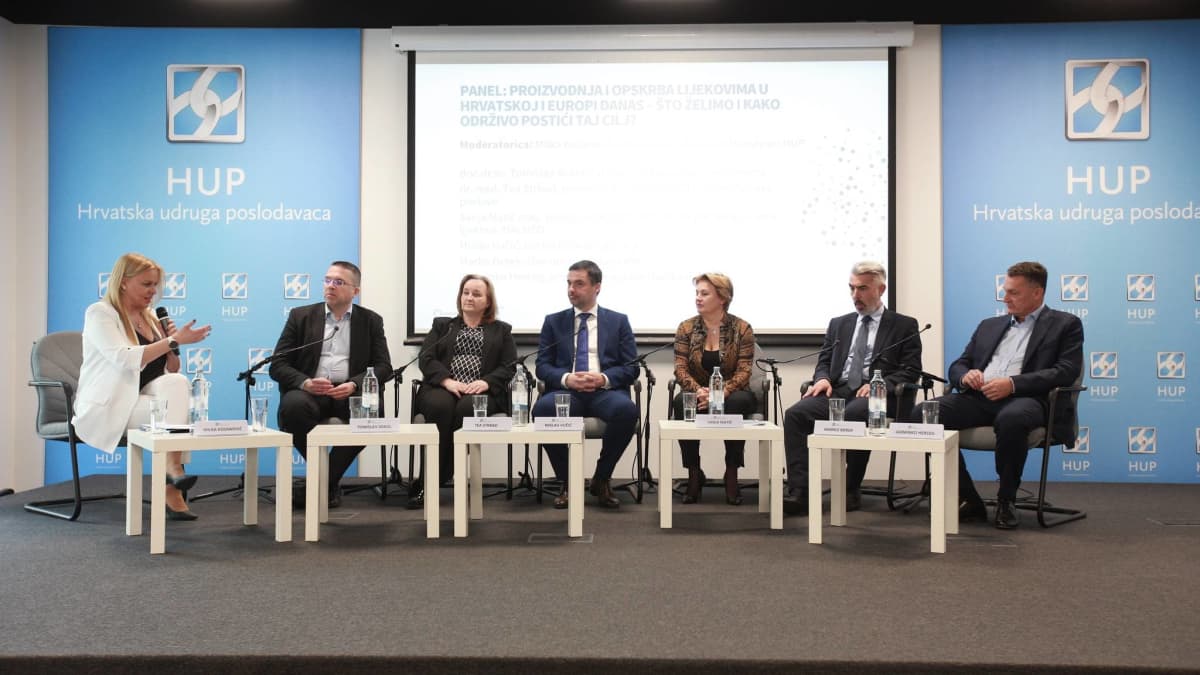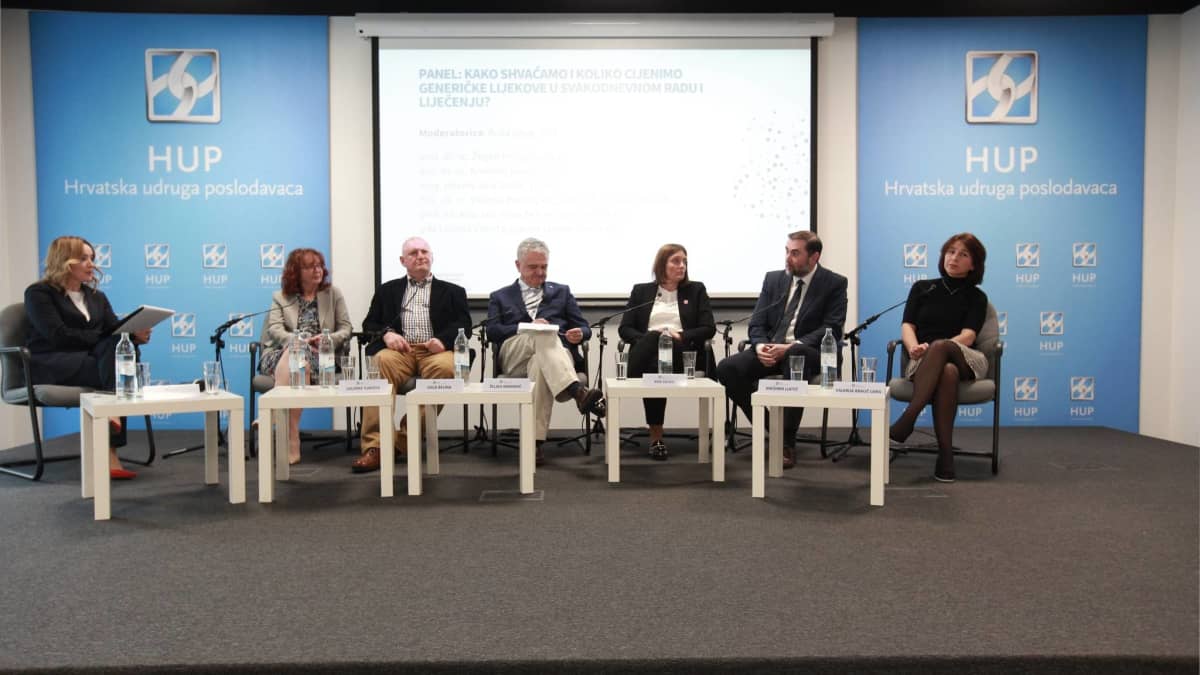The Croatian Association of Employers (CEA) hosted the conference “Generic drugs – the key to a stable system and widespread availability of treatments: efficient, available and reliable – do we only value them once they are gone?”. It was dedicated to the role of generic drugs in the healthcare system and the long-term sustainability of the industry that is strategically important for strengthening the European and Croatian economies. The conference was organised by CEA’s Association of Drug Manufacturers (ADM), and included representatives from institutions, diplomacy, public health, patient associations, the pharmaceutical industry, and manufacturers who are members of CEA-ADM.
“Croatia is one of the few European countries with a long and successful tradition of pharmaceutical production on its territory. This industry has a long tradition, employs thousands of people, it is strongly export-oriented, with an exceptional development and research potential, and deserves the full attention of socio-political actors, who hold the keys to releasing its full potential – investment, research and development, production and even stronger employment”, said CEA Director Irena Weber, adding that the CEA sees regulatory changes as an opportunity for Croatia to become a centre of European pharmaceutical production, expertise and excellence.
The introductory lecture was given by Adrian van den Hoven, the Director General of the European association of manufacturers of generic and biosimilar medicines Medicines for Europe, who summarised the changes in European pharmaceutical regulations: “The reform of pharmaceutical legislation in the EU is aimed at improving access to medicines in all EU countries and ensuring equality of access to medicines in the EU, particularly in the form of a Communication of the European Commission addressing medicine shortages. The Communication includes concrete actions, such as introducing criteria for supply chain security in the regulations for the procurement of medicines at EU level. The EU is also considering a policy of joint investment with the pharmaceutical industry in the production of key medicines and active pharmaceutical ingredients in Europe. This requires a legal act similar to the one for the production of microchips.” He also added that due to a consolidation of the industry, 26% of generic drugs have been recalled from at least one EU member state, and that the situation is significantly worse for critical antibiotics and oncology drugs because most of the EU market relies on less than three suppliers.
Mihael Furjan, President of the Croatian Association of Employers and President of the Board of Pliva Croatia, and Ana Gongola, President of CEA-AMD and Member of the Board of Sandoz, addressed everyone present, which was followed by a panel discussion on the topic of “Production and supply of medicines in Croatia and Europe today – what do we want and how can we sustainably achieve that goal?”, in which JGL’s CEO Mislav Vučić also participated.

“First of all, it is important to note that a strong pharmaceutical industry needs highly qualified professionals. The fact is that tradition and intelligence in the pharma industry is highly concentrated in a 160 km radius around Zagreb. Furthermore, we need a review of the Act on Investment Promotion, which is also applicable to the promotion of development and production, but it has not changed in 20 years, and during that period circumstances have changed significantly. The amounts mentioned in it are no longer relevant, especially if we look at what our industry plans and wants today; and it wants much more than before”, said Mislav Vučić, who participated in the panel together with Tomislav Sokol, Member of the European Parliament, Tea Strbad, Assistant Director of the Croatian Health Insurance Fund, Sanja Matić, Head of the
Department for Drug Consumption and Pricing at HALMED, Marko Đerek, Board Member at Belupo, and Jasminko Herceg, President of the Board of Medika d.d.

In the last panel of the conference, entitled “How well do we understand and how much do we value generic drugs in our daily work and treatment?”, the participants discussed medical and pharmacy practice and how the patient’s well-being and the doctor-patient relationship are jeopardised if a certain drug is unavailable, because patients have a tendency to get attached to the medicine they normally use.



